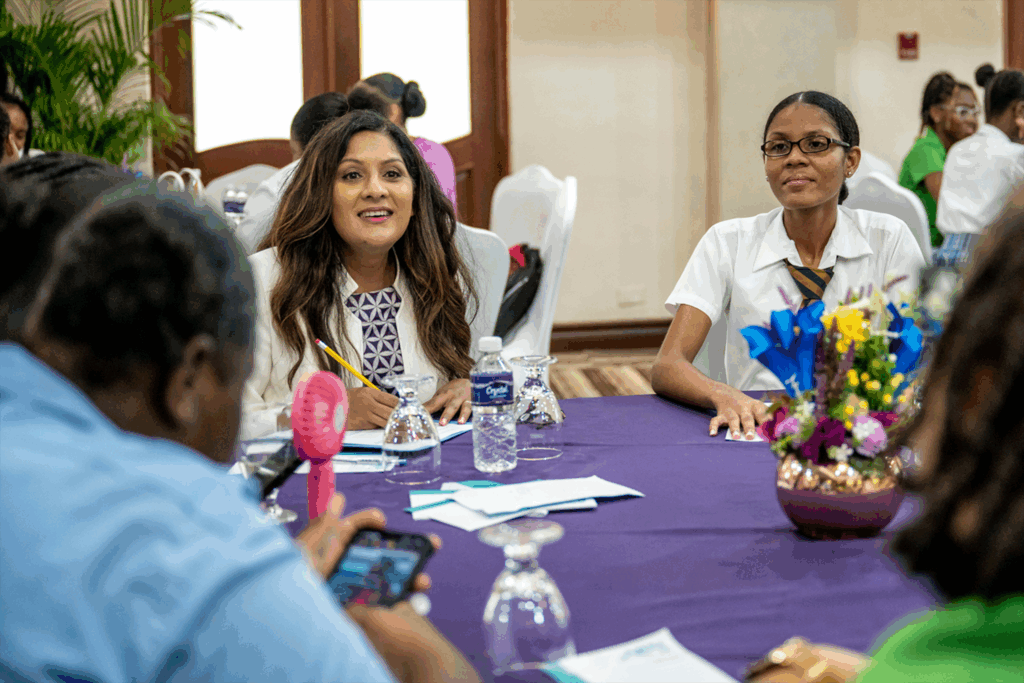Media professionals and students from Guyana and across the region are engaged in a two-day Media Summit hosted by the Media Institute of the Caribbean (MIC) in collaboration with the University of Guyana (UG) and the Guyana Press Association (GPA).
The event is seen as an urgent call to action for journalists and media owners to rethink how news is produced and consumed before AI-driven “synthetic facts” fully sever the media’s tether to lived reality.
Held at the UG Turkeyen Campus, the summit attracted scores of online participants and in-person attendees, ranging from students and editors to publishers and media owners.
Sponsored by ExxonMobil, Caribbean Airlines, and the United Nations Guyana, this year’s summit builds on discussions first held in Jamaica last year. This year, the discussions are under the timely theme: “Evolving Media Business Models in Turbulent Times.”
The dominant undercurrent? The existential threat posed by AI to the authenticity and sustainability of journalism.
“We must rethink the newsroom,” declared MIC President Kiran Maharaj in her opening address.
Maharaj stressed the need for equitable AI governance, urging governments and media owners alike to defend journalism as a public good.
Nazima Raghubir, President of the Guyana Press Association, echoed this concern, warning that traditional media is under siege—not just from dwindling revenues but also from technological and political pressures.
“We are contending with a digital tsunami,” she said. “And it’s forcing media entities to innovate, often with few resources, while still being expected to uphold the highest standards of journalism.”
The summit is more than talk; it’s an intellectual intervention. Across plenaries and panels, participants will explore how media houses can adopt sustainable business models, protect press freedom, and adapt journalism education to new technological realities.
But it was Professor Paloma Mohamed, Vice Chancellor of UG, who delivered perhaps the most sobering and electrifying remarks.
“We are not just losing control of the newsroom,” she warned. “We are losing the very idea of reality. Synthetic facts, deep fakes, personalized algorithms—they’re not just tools; they’re weapons of distortion.”
In a deeply reflective address, Mohamed called for a reinvention of the media ecosystem. She described how emerging technologies are fracturing public discourse, enabling powerful actors to control narratives and marginalize truth.
“Media is no longer just a mirror of society,” she said. “It’s a battleground. If we don’t fight for truth now, we risk becoming complicit in our own obsolescence.”
She described the current media landscape as one plagued by a “synthetic information system”—where AI-generated content, clickbait culture, and influencer-driven misinformation collide to drown out credible journalism.
“It’s not just about speed or reach,” she said. “It’s about responsibility. Journalism must be the moral compass in a disoriented world.”
The Media Summit continues on Saturday with sessions on data journalism, digital revenue models, media literacy, and AI safety, offering practical tools for those committed to reshaping journalism from the inside out. (Newsroom GY)
The post Caribbean journalists urged to combat synthetic facts, reclaim reality in the age of AI appeared first on nationnews.com.


